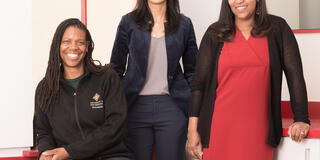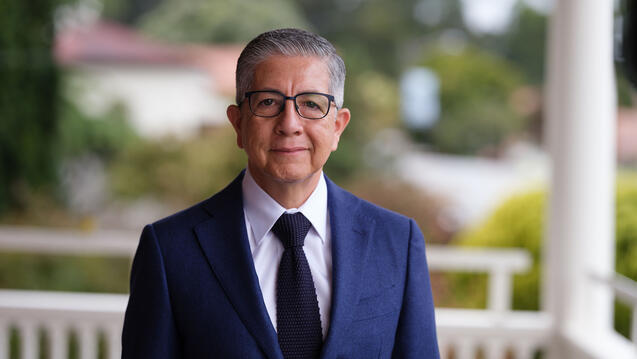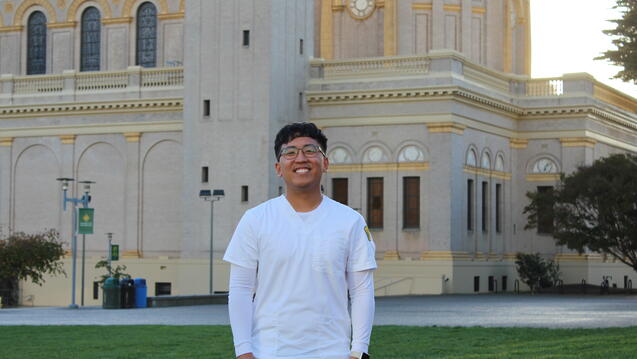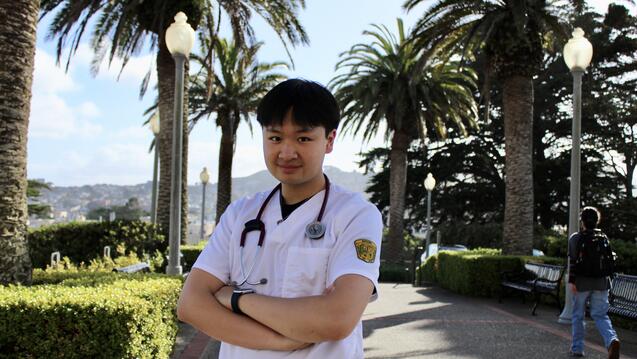What 2020 Taught Us

We talk with the USF School of Education leadership team, Dean Shabnam Koirala-Azad and Associate Deans Cheryl Jones-Walker and Colette Cann, to find out what they learned leading the school through the converging pandemics of 2020 and what they hope 2021 will bring. Check out our conversation below.
In the School of Education (SOE) we often talk about “joyspotting” - the practice of finding and acknowledging things that bring us joy. Where did you "spot joy" in 2020?
Dean Shabnam Koirala-Azad: Any space where we were able to gather as members of the SOE community brought me so much joy. Our virtual all school faculty and staff gatherings, the virtual “Tea with the Dean” and our Monday staff meetings were some examples of meaningful and joyful spaces where we could engage with our reality, but also be together and share laughter or tears.
I also found so much joy in creating. In some ways, the disruption of business as usual allowed for new dreams to emerge. During 2020, the SOE launched the Center for Humanizing Education & Research (C-HER). Students were at the forefront of initiating a variety of projects based on the urgency of the pandemic and in service to their communities. I felt so much joy as I experienced this “creation” during such difficult times.
Associate Dean Cheryl Jones-Walker: I was surprised by how Zoom allowed us to truly be in community. I reflect on the SOE’s virtual doctoral hooding ceremony, the all school meetings, the Danza Dreams event to raise funds for undocumented students studying in the School of Education, and on the music and art that we had at many of these events. They were reminders of the importance of our work, of who we are as a school, of how strong our community is - faculty, students, staff and alumni
Associate Dean Colette Cann: Zoom meetings provided an opportunity to meet many of the loved ones with whom we share our lives. Children, grandchildren, cats, and puppies graced many a Zoom window in 2020!
What is something you learned leading the SOE in 2020 that you want to take with you into 2021?
Koirala-Azad: I learned that “leading” is a collective act. We often see leadership as an individual act, but the way we were able to navigate all the different crises of 2020 was through collective efforts in teams. Teams of faculty, staff, students. Some of the most meaningful spaces were created at the program and department levels. I think conceptually I always knew that advancement requires collective work, but practically this became evident in beautiful ways in 2020.
I also learned about the importance of the clarity of vision within the SOE. The SOE has such a great legacy of vision towards justice, and I saw alignment and endurance towards that vision even when things were hard.
Jones-Walker: I want to continue holding space. This year we created virtual spaces for folks to come and have conversations, to ask difficult questions. It was a grounding opportunity for folks. It continues to be important to be in a broader community, particularly as we continue to deal with the impact of COVID-19.
I also leave 2020 feeling very lucky to be in the SOE community at this moment in time. There is a calling for justice right now that is so aligned with our mission, the work we are already doing. We’re ready!
Cann: I want to approach the semester with grace, ease and forgiveness.
What is one hope you have for the SOE in 2021?
Koirala-Azad: My hope is for collective health. We are still in the midst of this public health crisis, and in this country, the fight for racial justice lies clearly ahead of us. I am hoping that as we emerge from the pandemic, our community is healthy - physically, emotionally, spiritually, mentally.
Jones-Walker: As I think about 2021, I’m asking: How do we continue to find joy? To sustain the work? Despite how well we’ve been able to manage, it’s a really difficult and unmanageable context. It’s important to acknowledge that and to respond to that in a way that feels meaningful and keeps us healthy. In some ways, this will mean doing less and in other ways it might mean doing more. I hope we can find that balance.
Cann: I hope that we approach our work and relationships with each other with lovingkindness.


